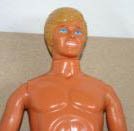 I worked in a hospital for over a year on the Hem/Onc floor. We were the highest Onc floor, which meant we had the most terminal patients save for the ICU just above us. The night shift was a long shift, and we would pass it at the nurses’ station talking about nothing. The nurses would tell me about each patient or go through the charts with me (which might be against JCAHO, might not be) and I’d try to absorp what I could. When a patient needed to go for a CT scan, I would take him in his bed or wheelchair and sit behind the consoles watching the slices of their body on the screen.
I worked in a hospital for over a year on the Hem/Onc floor. We were the highest Onc floor, which meant we had the most terminal patients save for the ICU just above us. The night shift was a long shift, and we would pass it at the nurses’ station talking about nothing. The nurses would tell me about each patient or go through the charts with me (which might be against JCAHO, might not be) and I’d try to absorp what I could. When a patient needed to go for a CT scan, I would take him in his bed or wheelchair and sit behind the consoles watching the slices of their body on the screen.
After a year, even without any training in Anatomy, you get an idea of which cancers are the worst and what they look like on the CT. You know where each organ sits in the body and what it’s supposed to look like. And more than all of that, you can tell when the CT tech is holding her breath and the physician brings his hand to his mouth that this person is in some trouble.
So it was with Anne. She was a little younger than me, a year maybe. She went to a college that I knew well. We might have known some of the same people. She came to our floor with her parents and sister. I admitted her, went through my “this is everything” speech after I took her vitals, and let her family know that I was only a call-button away. She was beautiful and healthy and trying to make the best of it.
The admitting physician called me over with a wheelchair and I took her down to CT. She asked me where I went to school, if I was a nursing student or a med student (neither at the time, but hopeful), and my age. We had a lot in common. I helped her onto the table and then went in the back with the monitors. The Tech held her breath, the doctor covered his mouth. I saw what they saw: hundreds of tumors in her liver. “Poor girl. She’s so young.”
Everyone was speaking less as I took her upstairs and she knew. When we were alone in the elevator, she asked me, “So. What do I have?”
I didn’t say. “I’m just a tech; I can’t read a CT.” Again, she knew. I brought her back to her room and she said, “thank you.” My shift ended a few hours later, but not before every nurse on the floor knew about this girl.
I came back the next night and I could tell that the doctors hadn’t told the family. I came back the next night and off the elevator I could hear the papers moving at the secretary’s desk above the sounds of the nurses’ conversation. They had told her. I looked at the assignments and she was my patient that day. I rounded, got all my vitals and emptied urine and talked to families. Her room was the last. I came in ignorant and smiling because I’m not supposed to know what everyone knows. Her mother met me, told me it had been a hard day for the family, and that the nurse already got the vitals. “If you need anything, please…”
“We know. Thank you.”
She became sicker, friends started to visit, and then she left for a different hospital. I never found out what happened to her.
——-
Working in the hospital, that first week, you’re obsessed with knowing everything about the patients. You write their first and last names on your record sheet, you know what they did for a living, and you look at your insensitive coworkers that don’t know their patient’s names until they read their wristband. They have patients 3, 4, 5, 7, 9, 10, 14, and 15 instead of Mrs. Hayes, Mrs. Bopp, etc. You tell yourself that you’re going to remember the names of every person. You’re an idiot.
I’m no different. I tried it and slowly they slipped away. Then I started forgetting the names of people that had been on the floor for weeks at a time. Then I couldn’t remember the names of the people that had died on the floor, or the ones I had watched die. Then I couldn’t remember even 10 of them.
But I’ve always remembered Anne. Everytime I feel the year I spent in Hem/Onc slipping away and I can’t remember the nurses’ and the doctors’ and the patients’ names, so long as I remember Anne I feel like I haven’t lost it all. And I wonder how she’s doing. And I worry about her often.



 Posted by rumorsweretrue
Posted by rumorsweretrue 






